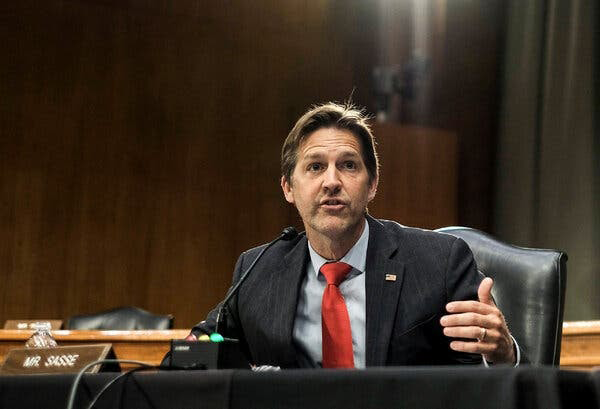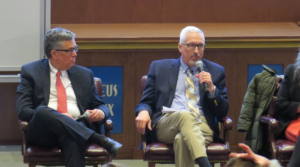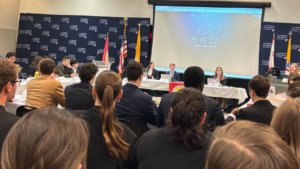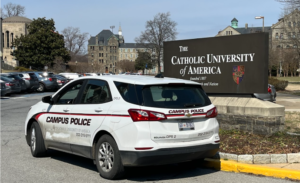Ben Sasse’s Bold Bipartisan Op-Ed

Image Courtesy of The New York Times
By Javi Mazariegos
The United States Senate is designed to be the world’s greatest deliberative body. Admittedly, a look at the Senate today could produce a doubtful note about the Senate’s greatness. This was the underlying sentiment of a controversial Wall Street Journal Op-Ed by Sen. Ben Sasse (R-NE) on September 8.
The upcoming Republican’s short article is titled with the clever and politically relevant phrase, “Make the Senate great again.” In brief, his article highlights some of the Senate’s worst qualities and offers bold strokes as possible solutions.
At the heart of Sasse’s vision is that the Senate ought to be the deliberative body where the nation’s biggest issues are dealt with critically and meaningfully by the nation’s best and brightest.
“The Congress [the Founder’s] envisioned is all but dead,” said Sasse.“The Senate in particular is supposed to be the place where Americans hammer out our biggest challenges with debate.”
Out of visions in Washington, this seems to be unique in its bipartisan support; everyone wants a great Senate. “Congressional dysfunction isn’t a partisan problem” touts Sen. Sasse. Sen, Sasse’s proposed solutions to the Senate’s inefficiency and decay were listed off quickly with a few remarks on why he claims such a solution would be helpful. Clearly, each of his solutions is not meant to be critically evaluated in his op-ed, he is just putting them forward.
This was not without criticism as a Washington Post perspective piece titled “Make Ben Sasse Think Again” walked through most of his solutions and criticized their seemingly unfounded presentation. Obviously, each of the solutions merits a conversation on their own, as each is rather bold. Nevertheless, they are as follows
First, Sasse recommended removing the live coverage of deliberation (i.e. get rid of CSPAN) in order to favor real debate over popularity or showmanship.
Next, he proposed abolishing standing committees in order to tackle specific issues in shorter periods of time. This was grounded in the criticism that standing committees can become political aspirations for those serving in the Senate.
Sasse also endorsed mandatory attendance during deliberations, since most of the talking on the Senate floor is preaching to empty chairs. Similarly, he proposed senators live together in dorms to facilitate friendship, especially between Democrats and Republicans.
Additionally, he proposed canceling re-election and have senators elected for single, 12-year terms so that Congress members would avoid spending efforts on re-election over deliberation; more often than not when a senator wins an election, their first order of business is preparing for re-election.
Further, he suggested returning to congress its power from the Executive Branch, questioning the weakening administrative authority of unelected bureaucratic Executive departments. He also proposed a change to Congress’s power of the purse: he recommended creating an all-inclusive Federal budget for two years, lest the Federal Government shut down, again.
One of his more controversial and deeply held suggestions was the repeal of the 17th Amendment. The House of Representatives was intended to be the popular chamber of Congress while the Senate was a representative of the larger corporate bodies of the U.S. (i.e. the States). The Founding Fathers would not have created a bicameral legislature if both chambers did not have an essentially different role to play. He argues that the 17th Amendment erodes the essential character of the Senate.
A few of the solutions were met positively by both sides of the aisle. For example, Washington Post opinion writer Daniel Drezner, who called Sen. Sasse’s article, a “very silly op-ed,” agreed that making a long-term budget would be helpful and that Congress ought to fight back for the power it has ceded to the Executive Branch for the last few decades. However, Drezner pointed out that many of Sasse’s propositions are either unrealistic or altogether naive and unfounded: how can one really call for senators to live together in dorms?
Particular criticism has been made against the solution to repeal the 17th Amendment, as it could be dangerous to the democratic aspect of the Federal Government. The call to cut cameras was disputed for eliminating Senate accountability, while Sasse did explain that transcripts would be made available to the public.
This is not Sasse’s first call to repentance proclaimed upon the Senate. Sasse was brought to the national spotlight for his 2015 maiden speech when, as one of the youngest Senators in term, he brought his concerns about the Senate’s dysfunction forward in a bold manner. This op-ed was conceived in much of the same spirit, particularly his emphasis on repealing the 17th amendment.
Sasse is both a politician and an academic. Having served various roles in National Security advising, the Harvard undergrad received a Ph.D. in history from Yale and seems to have entered the Senate with a zeal for change. The 17th Amendment has been a firm focus of his. His op-ed could be highlighted as a negotiation tactic to push his argument for the amendment’s repeal.
Regardless of the tactic, his words have re-introduced the issue of Senate dysfunction in a time of particular political strain, and uncertainty, and caused a renewed conversation about Congress’ purpose.







